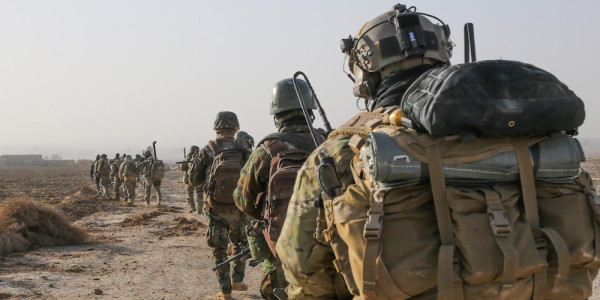

Buried deep inside Congress’ recently published report on this year’s National Defense Authorization Act, there’s an interesting section, in dense legalese, that seems to say: Yo, Pentagon, you need to tell us what the hell you’re doing when you’re doing it.
It’s buried on pages 310 and 311, inside a section on “notifications for sensitive military operations,” which is pretty juicy, relatively speaking, in a mundane 600-plus-page congressional document. It says: “Despite the [Defense] Department’s guidelines regarding notifications, recent notifications have been both untimely and insufficiently detailed for the committee to conduct necessary oversight.”
In plain English, the report states, the Pentagon has apparently been running operations in God-knows-where and hasn’t been very upfront with Congress about it. “Therefore,” the report adds, “the committee directs the Department to comply with the following requirements for notifications of sensitive military operations going forward.”
These sensitive military operations are defined by law as kill or capture missions conducted by the U.S. military outside of declared theaters of war, or operations outside declared theaters in self-defense or in defense of foreign partners. Think the Osama bin Laden raid, or a drone strike against a terrorist training camp in Sudan, for example.
As you can imagine, sensitive military operations are risky — involving plenty of moving parts and downsides, along with a chance of pissing off allies and enemies alike — so Congress is supposed to get a heads up.
Instead, the DoD has been using a loophole to keep lawmakers in the dark — or it’s notified them using seemingly intentionally vague language.
According to the report’s instructions, the Pentagon now is to notify lawmakers in writing of these operations within 48 hours with sufficient detail so they can actually carry out their constitutional role of, you know, oversight. And if there are opsec issues, Congress says, that’s up to the congressional members to decide, not the DoD (emphasis added):
“In the rare case that a notice contains information that the Department believes must be closely held within the committee, the Department should inform the Chairman and the Ranking Member of the need for such handling. The committee, not the Department, will then determine how to handle that specific issue. The committee, not the Department, must make its own determinations about how to conduct the requisite oversight, and under no circumstances should the Department unilaterally exclude appropriately-cleared staff from receiving notifications to Congress that are required by law.”
Read the full section below:
None

None

WATCH NEXT:
